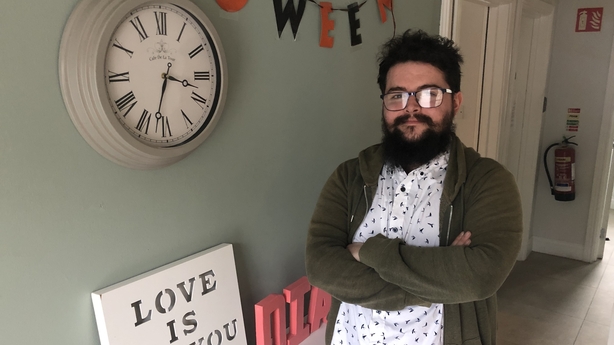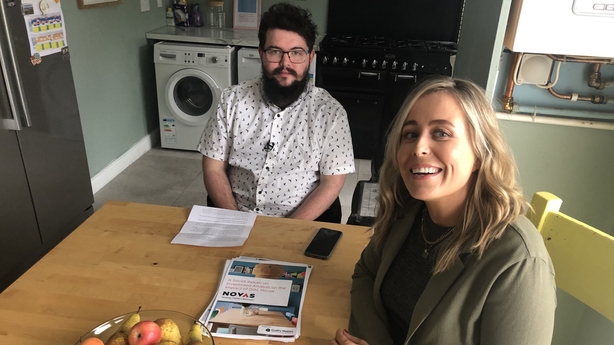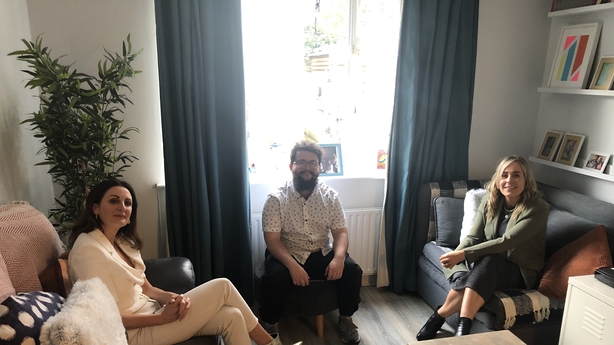A housing and homeless agency has called for targeted interventions for young people leaving the State care system, to prevent them becoming entrenched in long-term homelessness.
Novas, which has released its annual report for 2021, assisted almost 6,000 people last year, the highest figure in its history of working on housing and homeless problems, addiction and advocacy services.
A total of 1,067 of those were children.
One of the difficulties it encountered last year was caused by the contraction in the private rental market.
Novas said the age profile of those becoming homeless is getting younger, with around 20% of its clients now under 24 years old.
It has warned about the dangers of young people becoming homeless early in their adult lives, which could lead to them becoming entrenched in that life for much longer.
It said targeted and preventative measures specifically tailored to young vulnerable people, in particular those leaving State care, are needed to prevent long-term homelessness among young adults.
'There should be a DIAL house in every county'
The agency opened its DIAL house in Limerick in 2006, which provides a safe and secure family-like setting for people aged between 18 and 24, specifically to fill this gap in supportive services for young people.

DIAL stands for Developing Independent Active Living and is based at a suburban house, like any other on the northside of Limerick, which offers a home to five individuals over a two-year period.
One of them is 27-year-old Rob O'Leary, who lived in more than 30 foster homes during his teenage years and came to live in DIAL when he was 20.
"When I first came to DIAL, I was nervous and angry after so many years in the care system. I didn't know how to cook, how to manage a kitchen, do household chores, budget or save money," Mr O'Leary said.
"I was also very nervous and scared of talking to other people.
He added that from the start of living in DIAL, he was shown how to cook, how to clean, use the oven, washing machine and dishwasher.
"We had a rota for cooking and cleaning one day a week, and this is how I developed a passion for cooking," he said.
"We also had day trips and movie nights and bowling and these activities got me talking to people and helped me to make friends.
"They also got me back into education and now I’m in the second year of my four-year degree course in Art at the Limerick School of Art and Design.
"I hope maybe one day to teach Art," he said.
Louise Creamer, project manager of the DIAL house in Limerick, said that very often people coming out of the care system are at risk of becoming homeless.

"There could have been family breakdown and they may have childhood trauma, so they have issues around mental health. They may have a learning difficulty and they frequently do not have a supportive family network to help them. We try and provide that support to them," Ms Creamer said.
"We teach them life skills, which many of us take for granted, like cooking and cleaning and managing a house, but we also provide a lot of emotional support and confidence-building."
They have had a lot of success, with hundreds of clients coming through DIAL house over 16 years, who have gone on to live independent, sustainable and successful lives.
"It’s not for everyone, particularly for those with higher needs, like trauma, mental health and addiction issues, and it is sometimes very difficult for people suffering like this to transition into independent living," Ms Creamer said.
Una Burns, who is head of advocacy with Novas, confirmed that the lack of housing throughout the country is preventing throughput of people through their services and blocking up the system.
She said the rise in young people becoming homeless is very evident from their experience, with a fifth of their clients now aged under-24.
She said the big problem is if young adults become homeless early, then there is the danger that they will stay in homeless services longer.
"Many of the young people who present to homeless services are vulnerable and impressionable with limited resilience, with no proper life skills, and then they are exposed to the difficult and learned experiences of older people who may have addiction problems," Ms Burns explained.

"They then find it very difficult to extract themselves from that homeless cycle. So, one of the unintended consequences of going into homeless services young, is that you could spend years and years there.
"They cannot access affordable accommodation, as they are not on the housing lists for long enough, they are not attractive to landlords and there is limited, if any, availability of two-bed accommodation, so they end up spending really long period of time in homeless services," she added.
"DIAL is a key preventative and targeted safe supportive home where young people can live with others in appropriate settings to learn the very basic vital life skills to look after themselves, to heal and to form good healthy life relationships."
We need your consent to load this rte-player contentWe use rte-player to manage extra content that can set cookies on your device and collect data about your activity. Please review their details and accept them to load the content.Manage Preferences
Ms Burns said if they go to the larger hostels, they can become "entrenched in addiction and fall by the wayside".
"DIAL tries to divert them, offering a service bespoke to their needs, and also helps them get back into education, to build their resilience and lead fulfilled lives," she said.
"We think there should be a DIAL house in every county. It certainly has shown that young people coming out of care have the best possible chance of having successful outcomes if they have those targeted small home-like environments where they can grow and flourish."
Mr O'Leary is now living independently in Limerick with his girlfriend of five years and studying hard.
"If it wasn’t for DIAL, I don’t know where I’d be," he said.
"I might not have a home at all. I’d probably be on the streets if it weren’t for DIAL."







